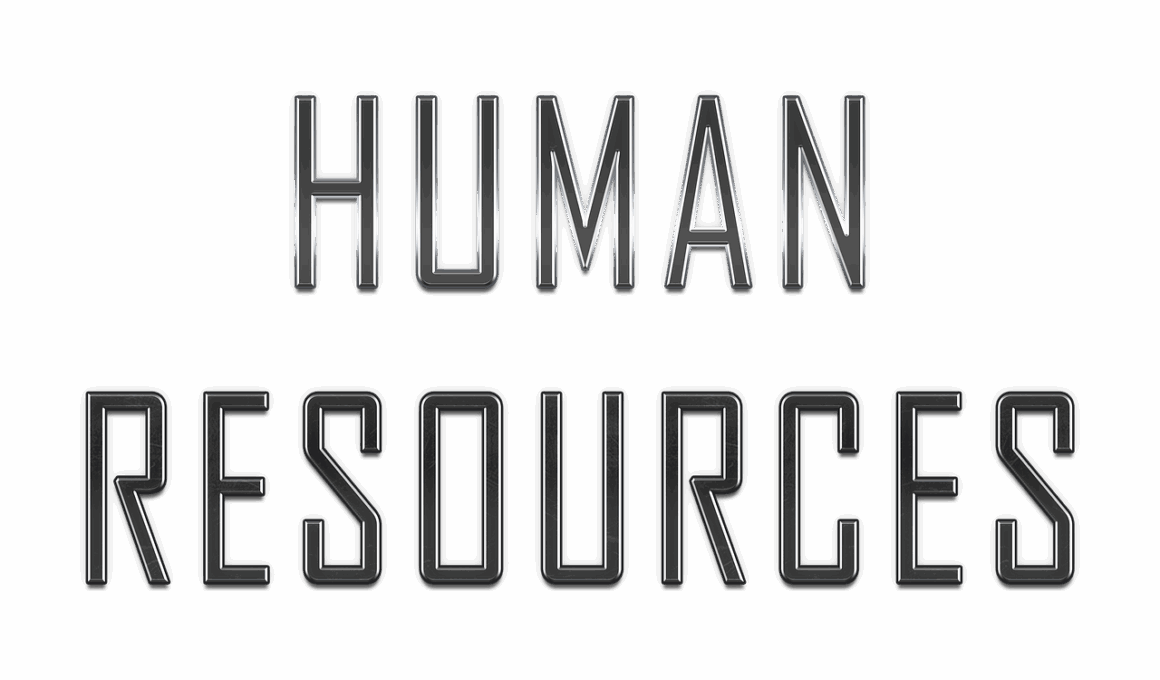Enhancing Employee Engagement in Finance with HR Software
In the fast-paced world of finance, fostering employee engagement is a critical success factor that often gets overlooked. Human Resources (HR) departments are increasingly turning to specialized HR technology to not only streamline operations but also to enhance employee satisfaction and engagement. By leveraging powerful HR software, finance firms can automate tedious tasks, allowing HR professionals to focus on initiatives that build morale. Engaged employees are typically more productive, motivated, and likely to stay with the company, thereby reducing turnover. Essential features of HR software include performance management tools, employee surveys, and analytics functionalities that can identify engagement trends. These solutions can help managers understand employee needs better while providing them with the tools to promote a positive workplace culture. Investing in the right HR technology can empower financial organizations to take advantage of these tools effectively. Therefore, it becomes crucial for finance firms to consider the specific needs of their workforce and select technology that aligns with their engagement goals. This approach not only benefits employees but can also significantly improve client service and financial performance.
One of the key aspects of using HR technology in finance is that it can provide insights into employee engagement through data analytics. By collecting and analyzing data on employee behavior and feedback, companies can uncover patterns that indicate overall satisfaction or dissatisfaction. Furthermore, HR technology enables organizations to design tailored engagement initiatives that address these specific areas, improving employee sentiment and retention. Various methods, such as pulse surveys and feedback mechanisms, can be integrated into HR platforms to assess employee engagement levels continually. Employers can respond proactively to this real-time feedback, facilitating timely adjustments to initiatives and policies. Moreover, advanced HR tools allow for benchmarking engagement metrics against industry standards, helping organizations identify where they excel and where opportunities for improvement lie. Engaging employees in this data-driven manner not only fosters an inclusive company culture but also leads to a more agile workforce, ready to adapt to industry changes. The integration of HR tech into finance firms has positively shaped the way organizations connect with their talent, enhancing experiences, and fostering long-term relationships.
Furthermore, human capital management systems have become an invaluable asset in facilitating employee development. HR technology empowers finance firms to create personalized training and development programs that cater to the unique needs of employees. By enabling access to online learning modules and professional development courses, employees can take charge of their career paths, cultivating a sense of ownership over their growth. This investment in personal growth is a strong motivator for employees who wish to excel in their careers, leading to higher levels of engagement. Effective HCM systems also feature career path planning tools, allowing employees to visualize potential advancements within the organization. Additionally, HR software can help team leaders identify skill gaps within their teams and provide targeted training to bridge those gaps. This proactive approach to employee development cultivates a culture of continuous learning, which can be particularly beneficial in the dynamic finance sector. Ultimately, the integration of personalized development into HR software fosters a motivated workforce prepared to meet business challenges head-on, benefiting the organization as a whole.
Utilizing Communication Tools for Better Engagement
Effective communication is a cornerstone of employee engagement, and HR technology can significantly enhance communication channels within finance firms. Modern HR platforms unite various communication tools, facilitating seamless interaction among employees and teams. By implementing features such as instant messaging, project collaboration tools, and forum discussions, firms can create an interconnected working environment. These platforms enable transparent communication between management and employees, allowing for constructive feedback and idea sharing. Additionally, HR software helps to accommodate remote work by creating virtual spaces for employees to engage regardless of their physical location. This sense of connection is vital in supporting teams spread across various geographical locations. By fostering open communication and collaboration, finance firms can cultivate a team-oriented culture that leads to enhanced engagement. Furthermore, these tools can assist in recognizing and rewarding employee contributions and achievements, another key factor in promoting enthusiasm and dedication. Therefore, utilizing communication functions within HR software can provide invaluable support in enhancing overall employee satisfaction and commitment to the organization.
Engagement is also closely tied to employee recognition, and incorporating this element into HR technology can amplify its effectiveness. HR software can be crafted with built-in recognition programs to acknowledge employee accomplishments and milestones in real time. These programs allow managers to highlight individual and team successes through praise and awards, which can go a long way in encouraging positive behavior among employees. Studies have shown that recognition directly influences employee morale and overall engagement levels. Additionally, accessible features allow peers to recognize each other, fostering a culture of appreciation within teams. Moreover, HR technology can help track recognition trends across departments, identifying patterns that reflect a positive or negative engagement climate. By implementing these solutions that prioritize recognition, finance firms can create an encouraging environment where employees feel valued and inspired to perform at their best. So, leveraging recognition capabilities within HR tech not only nurtures a positive work environment but also drives overall employee engagement, which is essential in a competitive financial sector.
Measuring the Impact of HR Technology
To understand the effectiveness of HR technology in improving employee engagement, finance firms must take a proactive approach to measure its impact. Utilizing built-in analytics tools within HR software allows organizations to track engagement metrics over time, providing valuable insights into the relationship between technology use and employee satisfaction. Metrics such as employee retention rates, participation in surveys, and overall productivity can be monitored to gauge improvement. Additionally, comparing engagement levels before and after implementing HR technology can provide concrete data on its effectiveness. Creating benchmarks against industry standards can further contextualize these results, helping firms identify where they stand in terms of employee engagement. Moreover, qualitative data from employee feedback can deliver deeper insights into how technology affects the workplace atmosphere. By aligning HR strategies and HR technology, finance firms can continuously refine their engagement initiatives, ensuring they remain relevant and effective. Therefore, measurement plays a crucial role in maximizing the returns on investment from HR technology, ultimately benefiting both employees and the organization.
In conclusion, enhancing employee engagement in finance through HR software is imperative for fostering a motivated workforce. By embracing innovative technology, finance firms can streamline operations, enhance communication, and promote recognition while developing personalized employee growth paths. As employee engagement remains a strong predictor of organizational success, investing in HR tech becomes essential. HR software gives organizations the capability to gather valuable data on employee sentiments, allowing for informed decision-making in engagement strategies. Importantly, the culture around employee feedback should prioritize open and constructive communication, creating a support system that encourages growth and development. Furthermore, finance firms must adopt a holistic strategy combining technology with meaningful practices to achieve genuine employee engagement. The sustained commitment to technology-driven engagement initiatives will undoubtedly create an energized workforce primed for success. Through these efforts, finance firms are not only setting the stage for improved employee satisfaction but are also enhancing their overall performance in a competitive industry landscape. Ultimately, prioritizing employee engagement through HR software is an investment in the business’s long-term viability and success.





